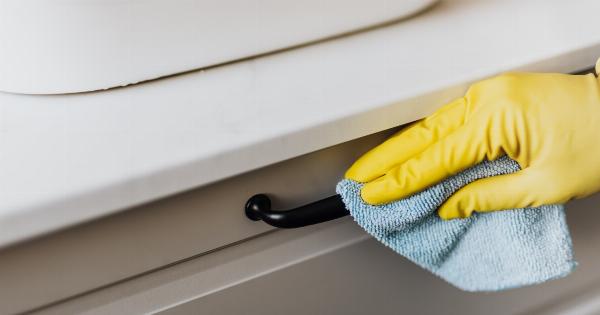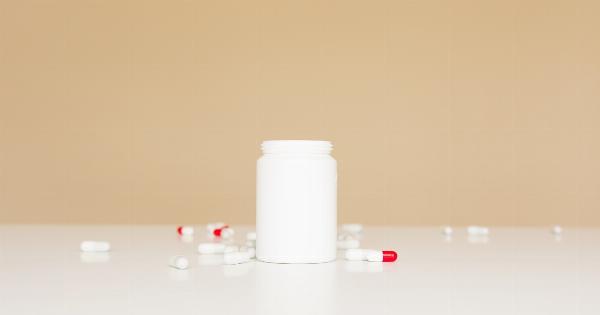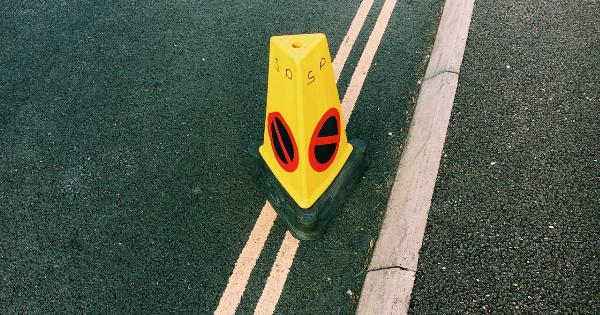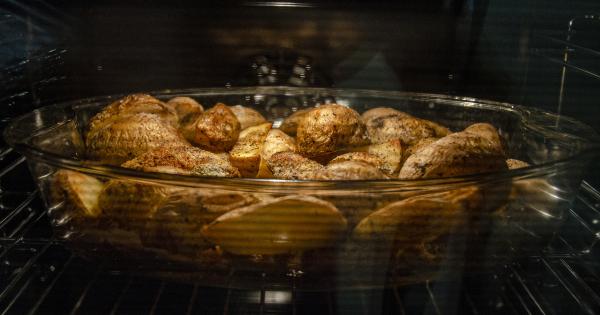Diarrhea is a common condition that can happen for various reasons such as infections, food intolerances, or medication side effects.
It is characterized by frequent loose and watery bowel movements that can lead to dehydration, weakness, and other health issues if left untreated. In this article, we will discuss some practical tips for dealing with diarrhea to ease your discomfort and prevent complications.
1. Stay Hydrated
Diarrhea can cause your body to lose essential fluids and electrolytes quickly, leading to dehydration. It is crucial to replenish the lost fluids by drinking plenty of water and other fluids such as clear broths, sports drinks, or coconut water.
Avoid beverages that contain caffeine, alcohol, or excessive sugar as they can worsen your symptoms. You can also try getting fluids from foods that are high in water content, such as watermelon, cucumber, or soups.
2. Follow a BRAT diet
A BRAT diet stands for bananas, rice, applesauce, and toast. It is a bland and low-fiber diet that is easy to digest and can help reduce diarrhea. These foods are rich in essential nutrients and minerals that can help regulate your bowel movements.
You can also add other low-fiber foods such as boiled potatoes, plain crackers, or chicken broth. Avoid high-fiber foods, fatty or spicy foods, and dairy products as they can irritate your digestive system.
3. Take Probiotics
Probiotics are beneficial bacteria that can improve your gut health and boost your immune system.
They can help prevent diarrhea by restoring the balance of healthy bacteria in your gut, which may have been disrupted by antibiotics, infections, or stress. You can take probiotics as supplements or consume them naturally from foods such as yogurt, kefir, sauerkraut, or pickles. Choose probiotics that contain strains such as Lactobacillus or Bifidobacterium that are known for their gut-friendly effects.
4. Use Anti-Diarrheal Medications
If your diarrhea is severe or persistent, you may consider using over-the-counter anti-diarrheal medications such as loperamide or bismuth subsalicylate.
These medications can help slow down your bowel movements and reduce the frequency and urgency of diarrhea. However, they should be used with caution and under the guidance of your healthcare provider, especially if you have underlying medical conditions, allergies, or are taking other medications.
5. Practice Good Hygiene
Diarrhea can spread easily through contaminated food, water, or surfaces.
To prevent the spread of diarrhea, it is essential to practice good hygiene such as washing your hands frequently and thoroughly with soap and water, especially after using the bathroom or before eating. Use hand sanitizers if washing facilities are not available. Avoid sharing utensils, towels, or personal items with others, especially if you have diarrhea.
If you work in the food industry, stay home while you have diarrhea to prevent contaminating food products.
6. Rest and Relaxation
Diarrhea can be stressful and exhausting, both physically and mentally. It is essential to get plenty of rest and relaxation to allow your body to heal and recover. Avoid strenuous activities, and take it easy until your symptoms improve.
You can try some relaxation techniques such as deep breathing, meditation, or yoga to reduce stress and promote healing.
7. Seek Medical Attention
If your diarrhea is severe, long-lasting, or accompanied by other symptoms such as fever, abdominal pain, or blood in stool, you should seek immediate medical attention.
These symptoms may indicate a more serious underlying condition such as inflammatory bowel disease, celiac disease, or food poisoning. Your doctor can diagnose the cause of your diarrhea and prescribe appropriate treatment.
8. Be Prepared
Diarrhea can occur unexpectedly, and it is wise to be prepared in advance, especially if you are traveling or have medical conditions. Keep a supply of anti-diarrheal medications, electrolyte solutions, and wet wipes handy.
Have a plan in place for emergencies, such as contacting your healthcare provider or seeking medical help if necessary.
9. Stay Positive
Diarrhea can be uncomfortable and inconvenient, but it is essential to stay positive and maintain a good attitude. Remember that diarrhea is a common and treatable condition that can be managed with the right approach.
Stay optimistic and focus on the things that bring you joy and comfort.
10. Follow Prevention Measures
Prevention is always better than cure. To reduce the risk of getting diarrhea, it is essential to follow some prevention measures such as:.
- Wash your hands frequently and thoroughly with soap and water
- Avoid eating or drinking contaminated food or water
- Cook meats and eggs thoroughly before eating
- Drink bottled or boiled water if you are in an area with poor sanitation
- Avoid high-risk foods such as raw or undercooked meats, seafood, or unpasteurized dairy products
- Get vaccinated against infections such as rotavirus, cholera, or hepatitis A if you are traveling to high-risk areas.
By following these tips, you can effectively deal with diarrhea and prevent complications. Remember that if your symptoms persist or worsen, you should seek medical attention immediately.
Take care of your gut health, stay hydrated, and maintain good hygiene practices to stay healthy and happy.































